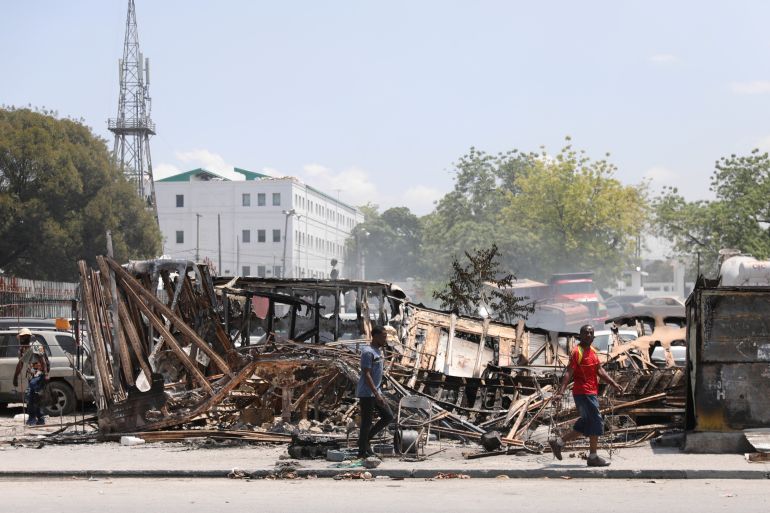A recent report released by the United Nations Human Rights Office has shed light on the dire situation in Haiti, where gang violence has reached catastrophic levels, eroding the rule of law and pushing state institutions to the brink of collapse. The report, which describes the situation as “cataclysmic,” reveals that over 1,500 people have already lost their lives to gang violence this year alone.
The escalating gang wars in Haiti have seen heavily armed rival factions launching waves of attacks, including brazen raids on police stations and even the international airport. The report documents a staggering 4,451 killings in the country last year, with an additional 1,554 recorded through March 22 of this year. Tragically, innocent civilians have become victims of this violence, with some being targeted in their own homes due to their alleged support for the police or rival gangs.
The report also highlights the alarming rise in lynching incidents carried out by so-called self-defense brigades. These armed groups, filling the security void left by the police, have lynched 528 people suspected of gang affiliations last year, and 59 so far this year. Shockingly, individuals accused of petty crimes or suspected of gang associations have been subjected to brutal acts of violence, including being lynched, stoned, mutilated, or burned alive.
Sexual violence has also become rampant in Haiti, with women being forced into exploitative sexual relationships with gang members. Additionally, there have been reports of rapes targeting hostages and women who have witnessed their husbands being killed in front of them.
The report attributes the erosion of the rule of law and the near-collapse of state institutions to corruption, impunity, poor governance, and the escalating levels of gang violence. The recent surge in violence was triggered when gangs united forces, launching a coordinated offensive and demanding the resignation of Prime Minister Ariel Henry. Henry, who assumed leadership following the assassination of President Jovenel Moise in 2021, has pledged to step down once a transitional council is established. However, the formation of this council has faced significant challenges due to disagreements among party leaders.
Despite an international arms embargo aimed at curbing violence, the report reveals that a steady supply of weapons and ammunition continues to flow across Haiti’s porous borders. It calls for stricter national and international controls to combat the trafficking of arms and ammunition into the country.
In light of the dire situation, the report urgently calls for the deployment of a Multinational Security Support Mission to assist Haiti’s police in quelling the violence. Kenya, which had agreed to lead the long-awaited UN-approved mission, has put its plans on hold until the transitional council is established.

